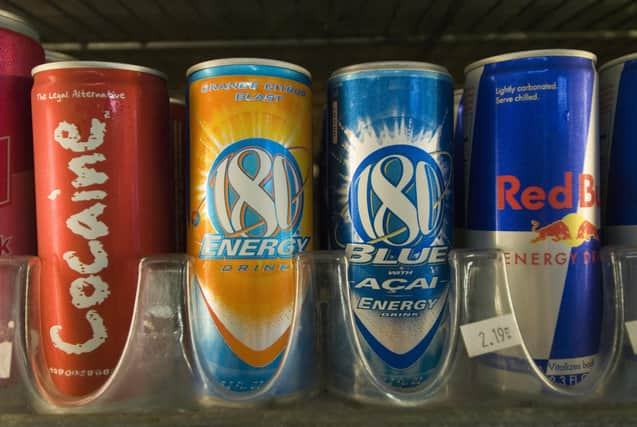Energy drinks causing insomnia and a lack of sleep, claims Norway study


Experts in Norway found that young people aged 18 to 35 who consumed the drinks every day slept around half an hour less than those drinking them occasionally or not at all.
Advertisement
Hide AdAdvertisement
Hide AdAmong men, having two or three drinks a week meant they were 35 per cent more likely to have a bedtime after midnight, 52 per cent more likely to sleep less than six hours, and 60 per cent more likely to wake in the night than those who did not or rarely drank them. For women, they were 20 per cent more likely to have a bedtime after midnight and 24 per cent more likely to wake in the night.
It comes after a study published last week said the sale of all energy drinks to young people and children in the UK should be banned because of links with anxiety, stress and suicidal thoughts.
Energy drinks often contain high levels of caffeine and sugar and are marketed as providing people with an energy boost. While the government is consulting on banning their sale to under 16s, some larger retailers and supermarkets have voluntarily introduced a ban.
Researchers said: "The results from the current study show that there is a robust association between the frequency of (energy drink) consumption and the different sleep parameters."
Advertisement
Hide AdAdvertisement
Hide AdThe experts were drawn from across Norway, including the Universities of Bergen and Oslo.
British Soft Drinks Association director general, Gavin Partington, said: "Energy drinks that have a high caffeine content are legally required to be labelled as having a high caffeine content although it’s worth noting that according to the European Food Safety Authority, the average 250ml energy drink contains 80mg of caffeine, the same amount as a 60ml espresso but less than a 200ml cup of filter coffee.
"BSDA members are committed to supporting the responsible sale of energy drinks and our voluntary code of practice on energy drinks, which was introduced by and for BSDA members in 2010, contains a number of stringent points on responsible marketing."
Comment Guidelines
National World encourages reader discussion on our stories. User feedback, insights and back-and-forth exchanges add a rich layer of context to reporting. Please review our Community Guidelines before commenting.
